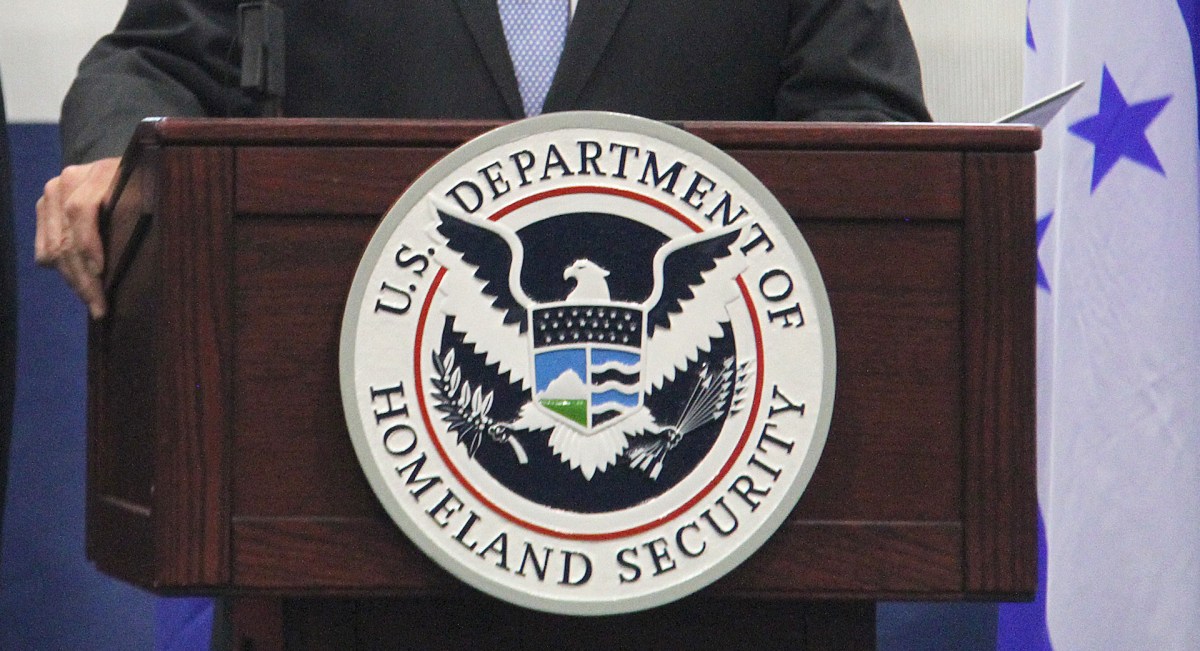House funding bill for DHS follows Trump plan to cut research and science offices

The Homeland Security spending bill advancing in the House of Representatives follows the Trump administration’s budget request in proposing severe cuts on the department’s Science and Technology Directorate — slashing the research programs and technology development facilities that it runs, including its national laboratories.
Although the bill, which covers appropriations for DHS for fiscal 2018, has a long way to go before it becomes law, the administration is already moving ahead with the cuts, preparing to shutter three of its five national labs and several key cybersecurity programs.
The cuts have drawn protests from former Homeland Security Secretary Tom Ridge, a Republican, and from Democrats in the House and Senate.
The National Biodefense Analysis and Countermeasures Center (NBACC) at Fort Detrick in Frederick, Maryland, and the Chemical Security Analysis Center (CSAC) at the Aberdeen Proving Ground in Aberdeen, Maryland, are both on the chopping block. The National Urban Security Technology Laboratory, which has facilities in New York City and Oakbrook Terrace, Illinois, is also slated for closure.
Even the popular cybersecurity Transition to Practice Program, which helps new online security technologies across the notorious “valley of death” that lies between prototype development and market viability, faces the axe.
But even as House subcommittee appropriators on Wednesday marked up the DHS bill containing the cuts — which now heads to the full Appropriations Committee next week — Ridge was joining Democrats in warning against closing the labs.
“To keep America safe and to preserve our role as a leader in technology, it is critical that we increase the DHS bill’s funding for research through the Science and Technology Directorate,” said Democrat Rep. Lucille Roybal-Allard of California, the ranking member of the Appropriations Homeland Security Subcommittee.
“This funding helps us develop cutting-edge technologies and practices, which make our country safer while saving money and manpower,” she added in an emailed statement to CyberScoop.
Roybal-Allard, who praised the bipartisan track record of her Republican colleagues on the subcommittee said that this year, for the first time, she would not be able to support the DHS bill unless it was amended. “I look forward to working with my Republican colleagues to revise the DHS bill so that we can finally commit sufficient funds to research through S&T,” she concluded.
Ridge, who was the first ever homeland security secretary when the department was et up in 2003, is now co-chairman of the bipartisan Blue Ribbon Study Panel on Biodefense. He issued a statement this week with his co-chairman, former Sen. Joe Lieberman. The two said they were especially concerned about the plans to shutter NBACC without moving its function elsewhere in the federal government.
“The panel is troubled,” said Ridge, “that [NBACC’s] closure may impact DHS’ ability to characterize high-consequence pathogens before and during a biological event.” He added that official claims that NBACC research could be duplicated elsewhere didn’t hold water. Ridge served at DHS under Republican President George W. Bush.
The president’s budget proposal “provides no plan via other departmental requests to transfer these responsibilities,” said Ridge — meaning there’s no designated replacement anywhere else in the government.
A group of Democratic lawmakers from Maryland wrote this week to President Donald Trump, also protesting the closures.
“These actions are alarming and will put the American people at greater risk of a chemical or biological terrorist attack,” wrote Sens. Ben Cardin and Chris Van Hollen and Reps. Dutch Ruppersberger and John Delaney. They said NBACC’s staff “conduct technical analyses in support of federal law enforcement investigations and identify biological vulnerabilities and hazards to our nation. … CSAC plays a proactive role in identifying vulnerabilities in our nation’s infrastructure, effectively mitigating damages from accidental chemical discharge to terrorist attacks.”
Although the bill text released after the Wednesday markup isn’t detailed enough to list any funding changes to the national labs, its broad outlines for funding the Science and Technology Directorate are in line with the budget request, which proposed cutting S&T by almost 20 percent.
The directorate would be allocated $638 million for fiscal 2018, according to the bill. That’s $11 million more than the administration’s budget proposal of $627 million, but still less than the $771 million it actually got for the current fiscal year, which ends Sept. 30.
Trump administration officials at DHS told CyberScoop earlier this year that they are preparing to ameliorate the effects of any cuts by closing some programs outright and sparing others, rather than imposing reductions across the board.
The bill’s funding levels for the department as a whole are very generous. The topline total of $51.1 billion is $333 million above the President’s request and $1.8 billion above the fiscal year 2017 allocation, according to subcommittee Chairman John Carter, R-Texas.
The full committee will mark the bill up July 18.


